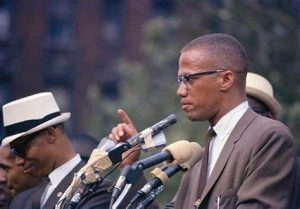
Staff Writer
The Southern District of New York has apologised to the killers of Malik Shabazz (Malcom X), who had been convicted, and later sentenced to decades in prison, for the civil and human rights leaders’ assassination, in February 1965. Mohammed Aziz and Khalid Islam, who had been imprisoned for 20 years, have had their records expunged. Mohammed is still alive, while Khalid passed on in 2009.
The family of Malik has welcomed the decision, and were at the forefront of calling for a more extensive investigation into Malik’s death. At the time, Washington cared more about finding killers that fitted a certain racial and religious profile, leading to Aziz and Islam’s conviction, despite both having alibis at the time of his death.
Speaking to Radio Islam International, Saheed Khan, a lecturer in Near East Asian and Global Studies at Wayne State University argued that this “essentially means that their records will now be erased as if they had no criminal record at all, and that this would be a “vindication of their record.”
He noted that although this would correct history, it would not bring back the decades spent by the two in prison, and their resultant reputations, which were severely damaged as a result of the convictions.
He also noted the continued popularity of Malik, and the large coverage afforded to him, more than 50 years after his tragic death. Khan said, “Well, right now, it is a very big issue, which I think speaks volumes about the fact that Malcolm X and his legacy still holds a very strong and a very prominent position within current American discourse, and particularly given the prominence of Malcolm X as a civil rights leader.”
Malik Shabazz was a civil and human rights activist and leader, who was imprisoned for his activism. He earlier joined the Nation of Islam, but was forced out as a result of his questioning of its then leader, Aliger Mohammed’s nefarious activities and illicit relations with woman. This was not seen as disloyal, but treacherous, to the Nation of Islam organisation, paving the path to his tragic assassination in February 1965, at the age of just 39. Al Hajj Malik was greatly influenced by his 1964 pilgrimage to Makkah and Madinah, and the belief that Islam saw no racial superiority. He was in the process of starting up his own organisation, which would have been the opposition to the Nation of Islam, and was thus seen as a threat.







0 Comments